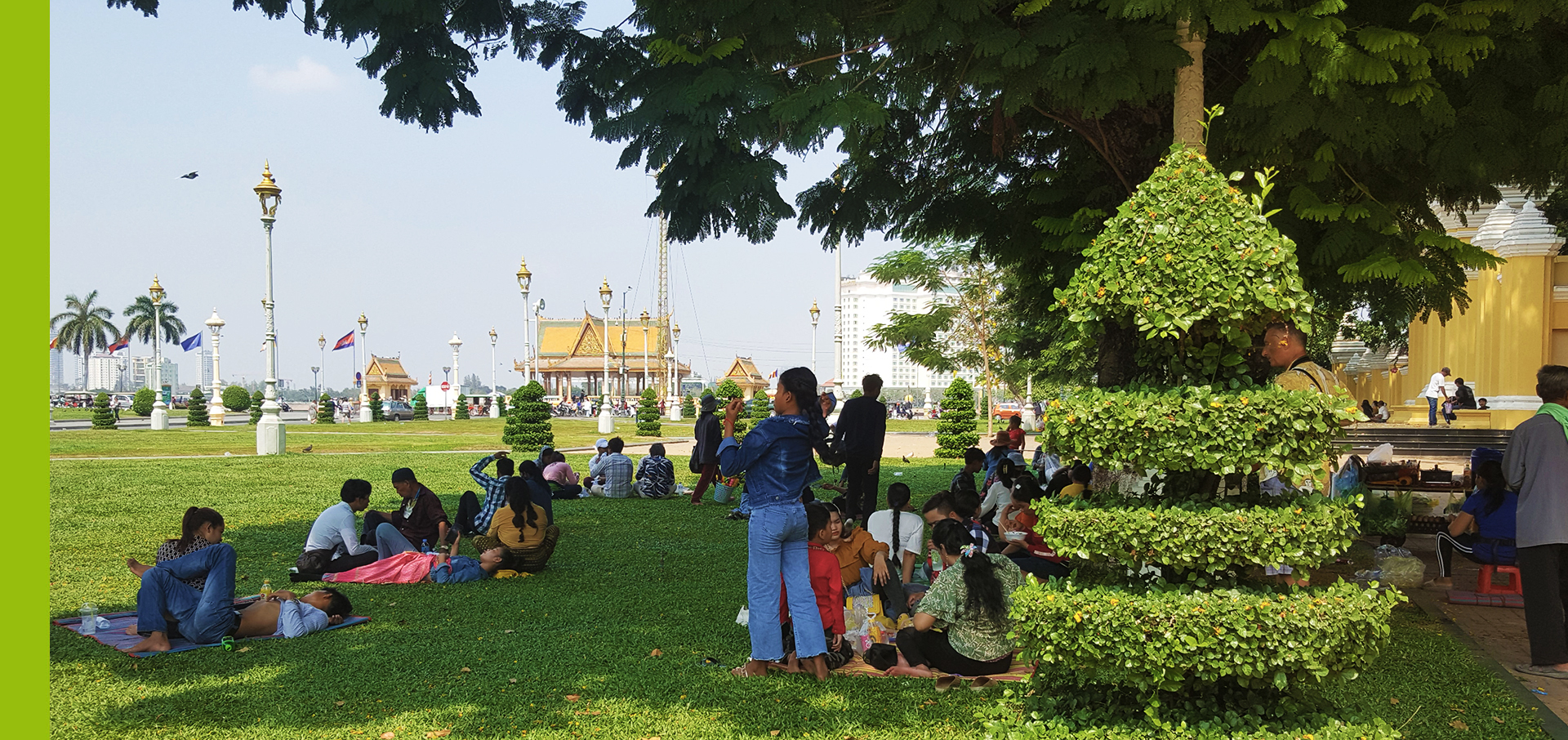Infusion of Build4People’s transformative approaches into the 2nd batch of the Master Program in Urban and Regional Planning at Royal University of Agriculture, Phnom Penh
Build4People is very happy about the continued infusion of its transformative approaches into the Master Program in Urban and Regional Planning at Royal University of Agriculture.
Prof. Dr. Tep Makathy, Dean of the Faculty of Architecture and Urban Planning at Paññāsāstra University of Cambodia and Director of the Cambodian Institute of Urban Studies, is currently teaching the 2nd batch of students of this innovative course.
His course unit “Sustainable Urban Transformation” applies key principles of the B4P Transformation Toolbox, developed to support the Phnom Penh Capital Administration in implementing more sustainable urban neighbourhoods.
B4P Transformation Toolbox components include Neighbourhood Evaluation Criteria, the planning and design guidelines Integrated Urban Design, Blue-Green Infrastructure, Sustainable Urban Mobility, Climate Protection & Energy Flows, Social Inclusion & Local Economy and Governance & Participation.
The course covers the fundamental principles of Build4People, such as the inclusion of interdisciplinary and transdisciplinary perspectives, a comprehensive understanding of urban planning as a transformative communication process involving multiple stakeholders, and a general advocacy for putting people and sustainability at the center.

All in all, it should be emphasized that the integration of Build4People’s comprehensive transformative formats into the curricula of local master’s programs, such as at the Royal University of Agriculture, is considered an extremely valuable and sustainable outcome for the Build4People project, as the continuation of the Build4People project approaches is expected to have long-term effects even after the end of project funding by the BMFTR.
#Build4People #BMFTR_SUREregions #sustainableurbantransformation #citiesforpeople #capacitydevelopment #curriculumdevelopment #livinglab #integratedurbandesign #measuringsustainability #neighbourhoodevaluationcriteria










